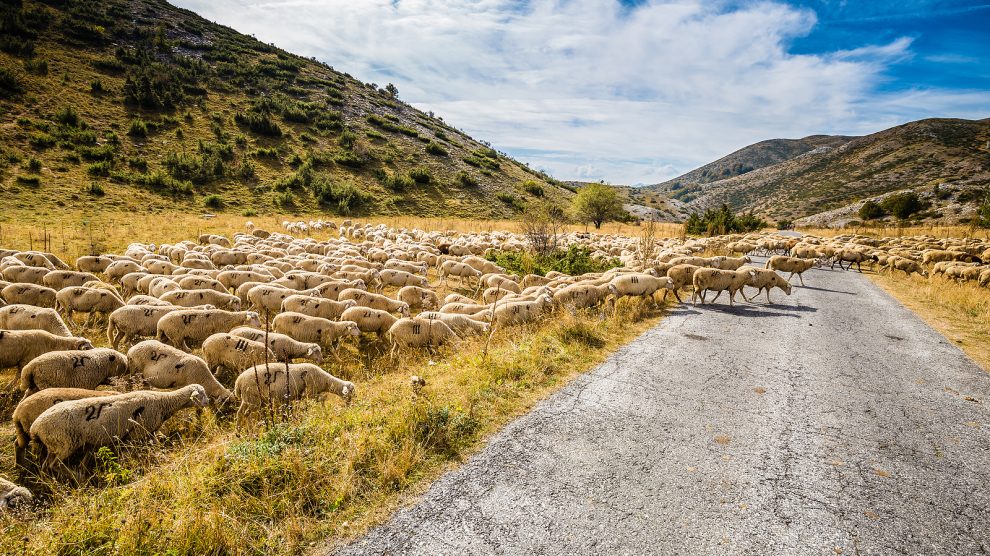A key part of the economy, agriculture in North Macedonia faces a number of challenges including adaptation to current climate conditions and sectorial inefficiencies.
Investing in policies that facilitate the adoption of innovation leading to more sustainable agricultural practices could help North Macedonia address vulnerabilities related to climate change and other environmental risks, according to a new report, Green Growth in North Macedonia ‘s Agriculture Sector report, published by the World Bank on May 8.
The agri-food sector is one of the key contributors to growth in North Macedonia, representing 7.6 per cent of GDP in 2021. This is higher than in most comparable economies in the Western Balkans, and other Upper Middle-Income Countries in Europe and Central Asia (ECA) region.
However, agricultural systems in North Macedonia face a number of challenges which include adaptation to current climate conditions and sectoral inefficiencies.
- Western Balkans show resilience despite slowing growth and continued price rises
- In the Western Balkans, the past again threatens the future
- Fossil fuels breed and exacerbate crises
Such challenges are expected to increase as a result of future climate change impacts. The report focuses on these challenges and investigates possible priority policy actions to promote a greener trajectory.
North Macedonia will also need to align its agriculture sector development policies to converge towards the European Green Deal targets. While the country performs above the EU-27 average in areas such as use of fertilisers and pesticides, broadband coverage in rural areas and greenhouse gas (GHG) emissions, it lags behind on targets on organic farming area, high diversity landscape, and protected areas.
“Agriculture requires a whole set of measures for protecting it from the climate events and the Ministry of Agriculture, Forestry and Water Economy is following and adapting to the conditions, and further implementing all available measures to protect the yields from the climate disasters,” says Ljupco Nikolovski, Minister of Agriculture, Forestry and Water Economy of North Macedonia.
Climate-smart agriculture practices
The report assesses the actions needed to re-focus agriculture sector support to reflect green growth ambitions, related policy financing implications, and the availability and capacity of implementation mechanisms.
The report argues that while the country’s support to agriculture through public funding has been generous, and the strategic choices for the 2021-2027 agricultural and rural development policy made by the Ministry of Agriculture, Forestry and Water Economy are aligned with the new Common Agricultural Policy (CAP) and respond to the sector’s challenges, North Macedonia has an immediate opportunity to enhance the focus on the design of policies and their implementation in domains that are relevant to green growth.
“Western Balkan countries, including North Macedonia, should continue to develop their agri-food sector given its importance for the economy and jobs, but should do so while focusing on greening the sector, adjusting agricultural and other relevant public institutions to support the adoption of climate-smart agriculture practices and increasing the resilience of the sector,” says Frauke Jungbluth, World Bank Practice Manager for Europe and Central Asia, Agriculture and Food Global Practice.
“Such alignment will also be critical to enable the countries to have continued access to EU markets, to enable absorption of future CAP funds, and their farmers to compete on equal ground with other EU farmers.”
In the short term, the government should focus on ensuring that the policy approach and measures specified in the 2021-2027 National Agriculture and Rural Development Strategy are implemented. In the medium to long term, policy initiatives to facilitate the green transition of the agri-food sector should be integrated into a new comprehensive strategic approach.

North Macedonia’s EU path
The accession of North Macedonia to the European Union has been on the current agenda for future enlargement of the EU since 2005, when it became an official candidate for accession.
The then Republic of Macedonia submitted its membership application in 2004, thirteen years after its independence from Yugoslavia. It is one of eight current EU candidate countries, together with Albania, Bosnia and Herzegovina, Moldova, Montenegro, Serbia, Turkey and Ukraine.
However, a long-standing naming dispute with Greece previously prevented the country from joining NATO and beginning its EU accession process. That particular dispute was finally resolved in 2018 with the signing of the so-called Prespa Agreement, in which Macedonia consented to change the name of the country to North Macedonia.
The agreement was equally unpopular in Greece and in Macedonia, but two years later, in 2020, the Western Balkans nation joined NATO.
Bulgaria, which has been an EU member since 2007, then insisted that North Macedonia formally recognise that its language has Bulgarian roots, acknowledge in its constitution a Bulgarian minority, and renounce what it said was “hate speech” against Bulgaria, effectively blocking the start of EU accession talks.
These began only in July 2022, following a French-brokered deal that saw Bulgaria lift its objections to the start of accession negotiations.
Unlike many news and information platforms, Emerging Europe is free to read, and always will be. There is no paywall here. We are independent, not affiliated with nor representing any political party or business organisation. We want the very best for emerging Europe, nothing more, nothing less. Your support will help us continue to spread the word about this amazing region.
You can contribute here. Thank you.


